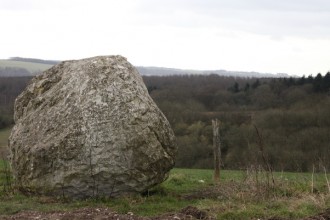The story of Jonah is one of the most well known in the entire Bible, even by people who don’t know much else about the Bible. It’s got a lot of elements to it – a reluctant messenger, a violent and dangerous people, shipwrecks, sea monsters – no wonder it’s an easy story to both tell and remember.
What the story of Jonah doesn’t have, however, is an ending.
You probably remember most of the details – Jonah was given a simple and straightforward task from the Lord. He was to go and deliver a message of judgment to the Ninevites. Problem was that Jonah didn’t want to go. The Assyrians who lived in Nineveh were the “bullies” of the day as they were known to be brutal in their attacks and unusually oppressive when they conquered other peoples. And Jonah had a sneaking suspicion that if he did go and he did deliver God’s message, then those people might just call out to God for mercy. And Jonah knew enough about God to know that He would answer that call.
Nineveh was to the east of Israel while the Mediterranean Sea was to the west. Jonah literally went the other direction. In his mind, he wanted to be as far away from where God called him to be. But God would not have it.
A terrible storm, a man overboard, and a few days in the belly of a great fish later, Jonah found himself vomited up on the beach and he finally went to work. Though the text says that it was a three day walk, which probably meant that it would take Jonah three days to walk from one end of the city to the other preaching his message, it only took him one. At the end of that one day, every citizen in Nineveh had been cut to the core. As evidence of their repentance, the king declared a state of extreme fast. The city was turning to God with all their might, even including their animals in their fast.
Now we come to the strange part – the last chapter of the book – Jonah 4 – finds the reluctant prophet sitting on a hill so angry that he wished he was dead (Jonah 4:9).
On the surface, Jonah is angry that the plant he was resting under died, leaving him exposed to the wind and sun. But God knew better:
But the Lord said, “You have been concerned about this plant, though you did not tend it or make it grow. It sprang up overnight and died overnight. And should I not have concern for the great city of Nineveh, in which there are more than a hundred and twenty thousand people who cannot tell their right hand from their left—and also many animals?” (Jonah 4:10-11).
And that’s it. That’s the end. As a reader, you are left with more than a few questions:
- Did the prophet come to his senses and repent himself?
- Did he die up on that hill?
- Did he return to Israel as a bitter and angry man, never to be used of God again?
And those questions matter to us, or at least they should, because who has not been in Jonah’s position? Who has not run from what God called them to do? Who has not been frustrated at the choices God makes? Who has not had some kind of bias against a certain group of people? Who has not been in sin, and then been in anger?
These questions matter because Jonah’s story, like so many stories in the Bible, is our story, too. So is there hope for this disobedient prophet? Because if there is, then there is hope for us, too.
What happened at the end of Jonah’s story? Well, there is a very great reason to believe that Jonah did indeed come to his senses. And that reason is the fact that we can read the book that bears his name today.
Who wrote the book of Jonah? Jonah did. And given the manner in which he honestly paints himself in his own account, then this book that will bear his name for all time serves as a marker of his repentance. Surely this is one of the indications that someone has truly owned their sin and received God’s gracious gift of forgiveness and the freedom that comes from it. Surely it’s the ability to, without justification or equivocation, to own up to their own sin. And this is what Jonah has done.
So while the end of Jonah leaves us with questions, the fact that the book is there at all leaves us with hope. Hope not in ourselves, but rather in the healing grace of God in Christ that is still there for us all.
Subscribe to MichaelKelley.co
Never miss a new post. Subscribe to receive these posts in your inbox and to receive information about new discipleship resources.





